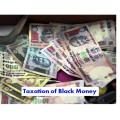Taxation of Equity Shares
Intraday Trading: Buy & Sell Equity Shares on same day. Income from intraday equity trading is considered as speculative. It is considered as speculative as you would be trading without the intention of taking delivery of the contract. Taxes paid according to the tax slab you fall in.
FORM ITR-3 is applicable for assessee who have income from Intraday Trading. Intraday equity transactions are speculative in nature and hence income gained from intraday stock trading is regarded as Speculative Business Income.
Calculation of Turnover For Intraday Trading:
Turnover for Intraday Trading = Absolute amounts of Profit or Losses. Absolute turnover means the sum total of (+) Positive and (-) Negative figures. Example:
Trade 1 Profit Rs.5,000/-
Trade 2 Profit Rs.3,500/-
Trade 3 Loss Rs.2,500/-
Trade 4 Loss Rs.7,500/-
Trade 5 Profit Rs.4500/-
Total Turnover will be Rs.23,000/-
Short Term Trading: Hold Equity Shares from one day to 12 months. It is 15% of the gain if the transactions (buy/sells) are executed on recognized stock exchanges where STT (Security transaction tax) is paid. STCG is applicable for holding period over 1 day and not more than 12 months.Deduction u/s 80C to 80U not allowed. [Section 111A of Income Tax Act, 1961]
Long Term Investment: Hold Equity shares for more than 12 moths. For stocks/equity – Nil (0%) for first Rs 1 Lakh and @10% exceeding Rs 1 Lakh. The above taxation rate is only if the transactions (buy/sells) are executed on recognized stock exchanges where STT (Security transaction tax) is paid. [Section 112A of Income Tax Act, 1961].
Points kept in the mind about Long Term Capital Gain u/s 112A:
- Deduction u/s 80C to 80U not allowed.
- Indexation benefits not allowed.
Dividend income from Equity Shares. Dividend income from Equity Shares is taxed at the slab rate.
Tax on Mutual Funds
Equity Mutual Funds: For equity mutual funds, the same rules apply as equity shares. Thus, for short-term capital gains on equity mutual funds, you will be taxed at 15% plus cess and surcharge. And long-term gains over Rs 1 lakh will be taxed at the rate of 10% plus cess and surcharges.
Debt Mutual Funds:
|
Debt Mutual Fund – Invested Upto 31-03-2023 |
Debt Mutual Fund – Invested W.e.f. 01-04-2023 |
| The tax on debt mutual funds also depends on the holding period. However, gains made within 3 years is considered as short-term and gains above three years are considered long term. The tax rates in both cases are:
Long term: 20% with indexation Short-term: Tax at slab rate plus cess and surcharge. |
Amendment vide Finance Act, 2023: Debt mutual funds will be taxed at the applicable slab rates. No indexation benefits.
|
Hybrid Mutual Funds: If over 65% of assets under management of a hybrid mutual fund is invested in equities, then the gains are taxed similar to equity mutual funds. However, if less than 65% of AUM is invested in equities, then the gains are taxed like debt mutual funds.
Gold Mutual Funds: The tax rate on gold mutual funds is the same as debt mutual funds. You will be taxed at the slab rate for gains from gold mutual funds.
Dividend income from mutual funds: Dividend income from mutual funds is taxed at the slab rate.
Taxation of Derivatives (Futures & Options)
Income from trading F&O (both intraday and overnight) on all the exchanges are considered as non-speculative business income as it has been specifically defined this way. F&O is also considered as non-speculative as these instruments are used for hedging and also for taking/giving delivery of the underlying contracts. Even though currently almost all equity, currency, & commodity contracts in India are cash-settled, but by definition, they give rise to giving/taking delivery (there are a few commodity futures contracts like gold and almost all agri-commodity contracts with the delivery option to it). Income from shorter-term equity delivery based trades (held for between 1 day to 1 year) are also best to be considered as non-speculative business income if the frequency of such trades executed by you is high or if investing/trading in the markets is your main source of income.
Unlike capital gains, there is no fixed taxation rate when you have a business income. Speculative and non-speculative business income has to be added to all your other income (salary, other business income, bank interest, rental income, and others), and taxes paid according to the tax slab you fall in. [Taxation of Income from Share Market]





